Not sure about choosing a charger? Try our revamped Charger Finder!
Try our revamped Charger Finder!
- For Installations
- All our chargers come with a 1 year warranty
- Free Shipping
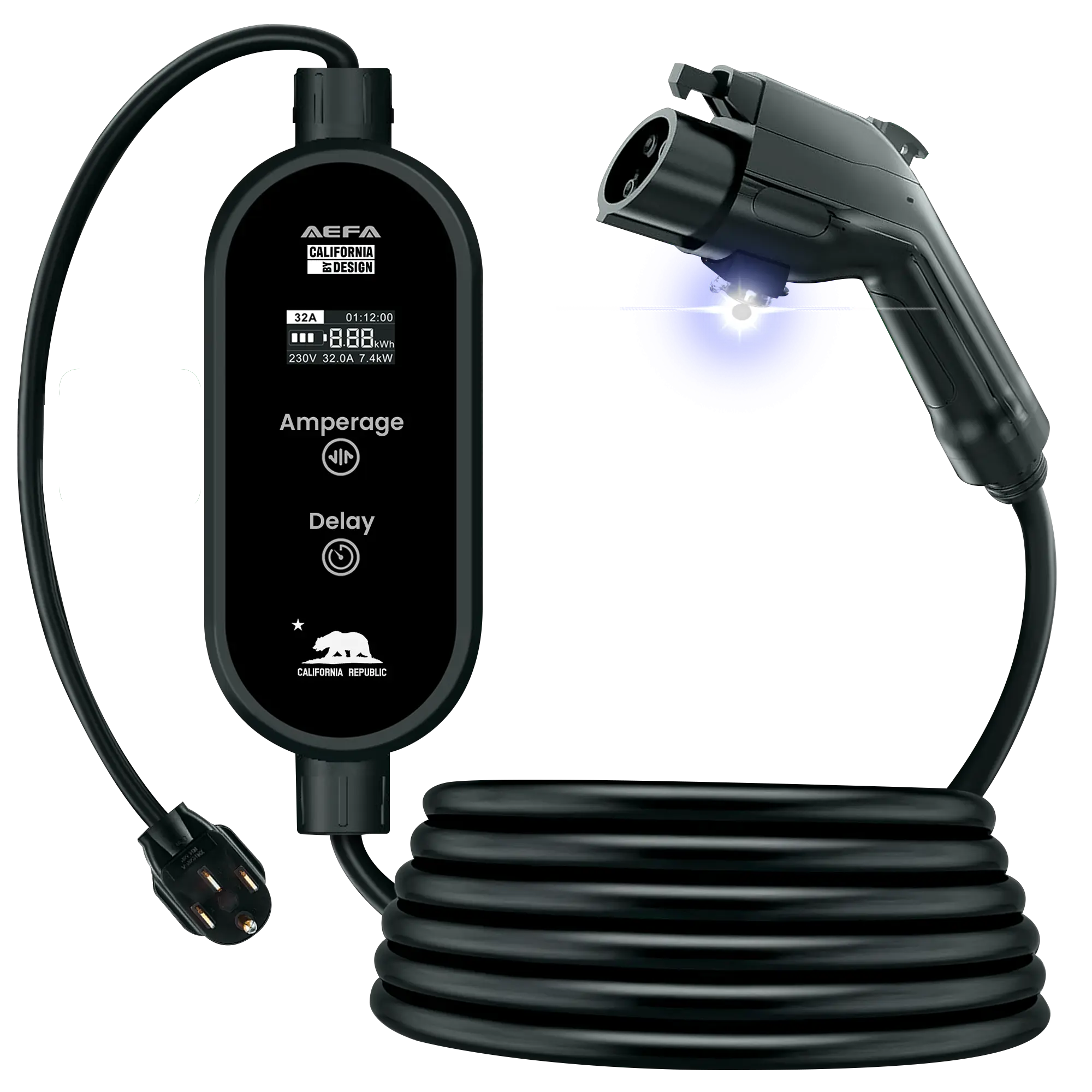

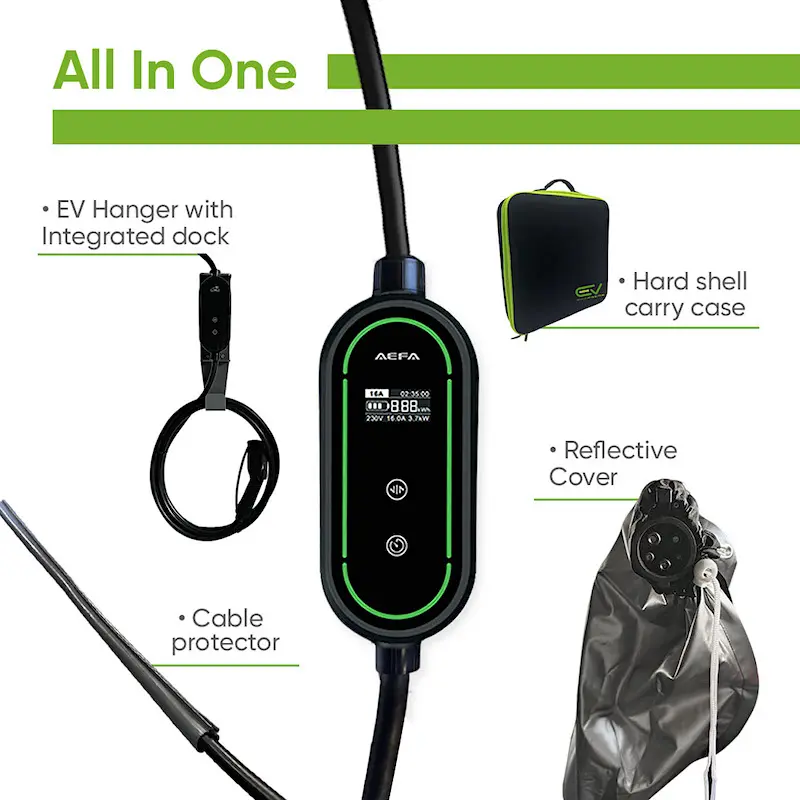
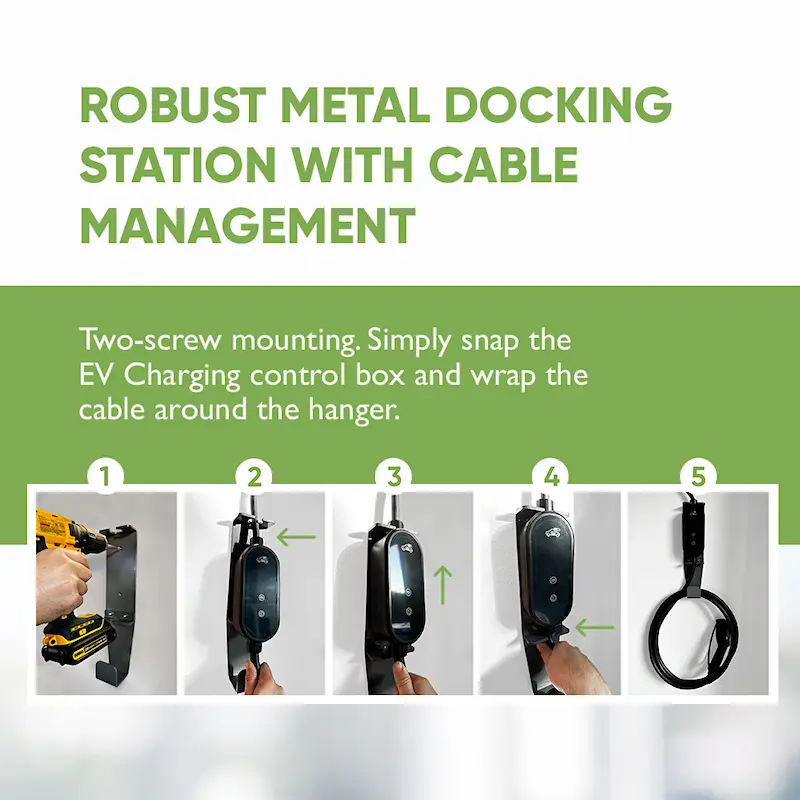
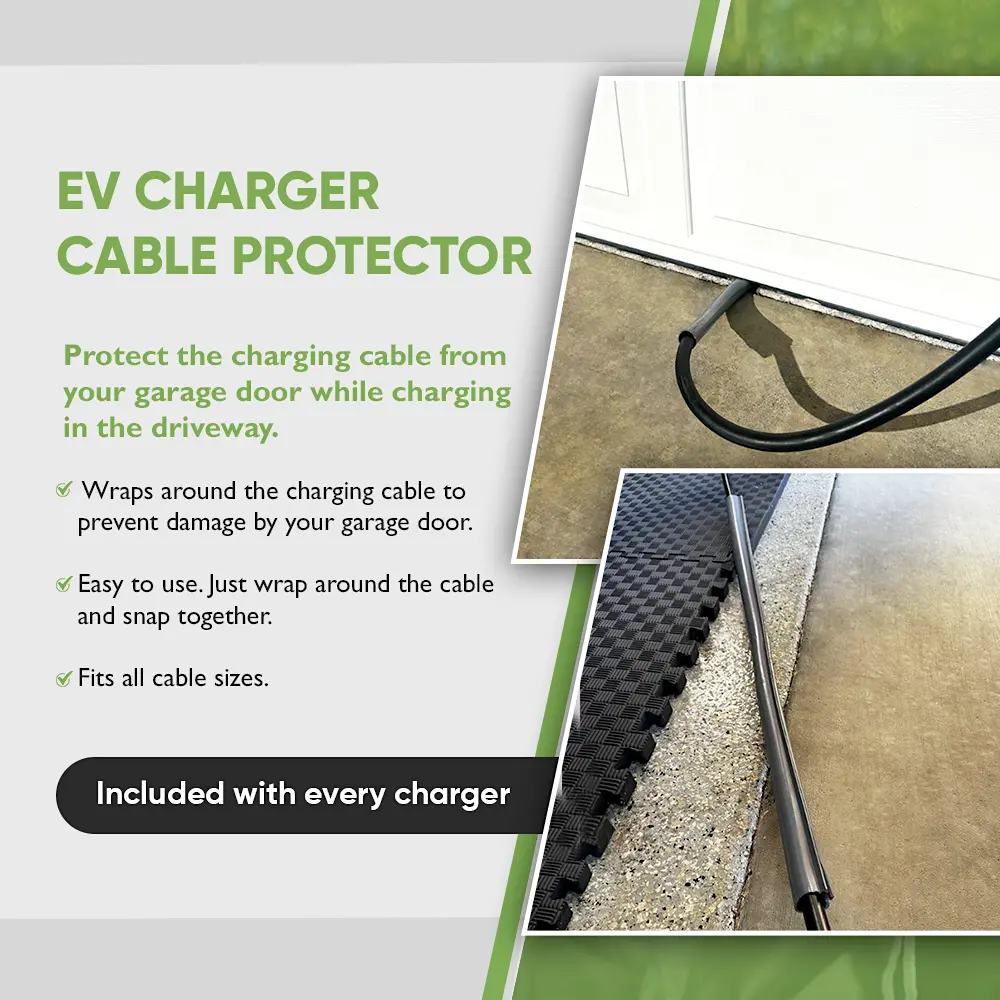
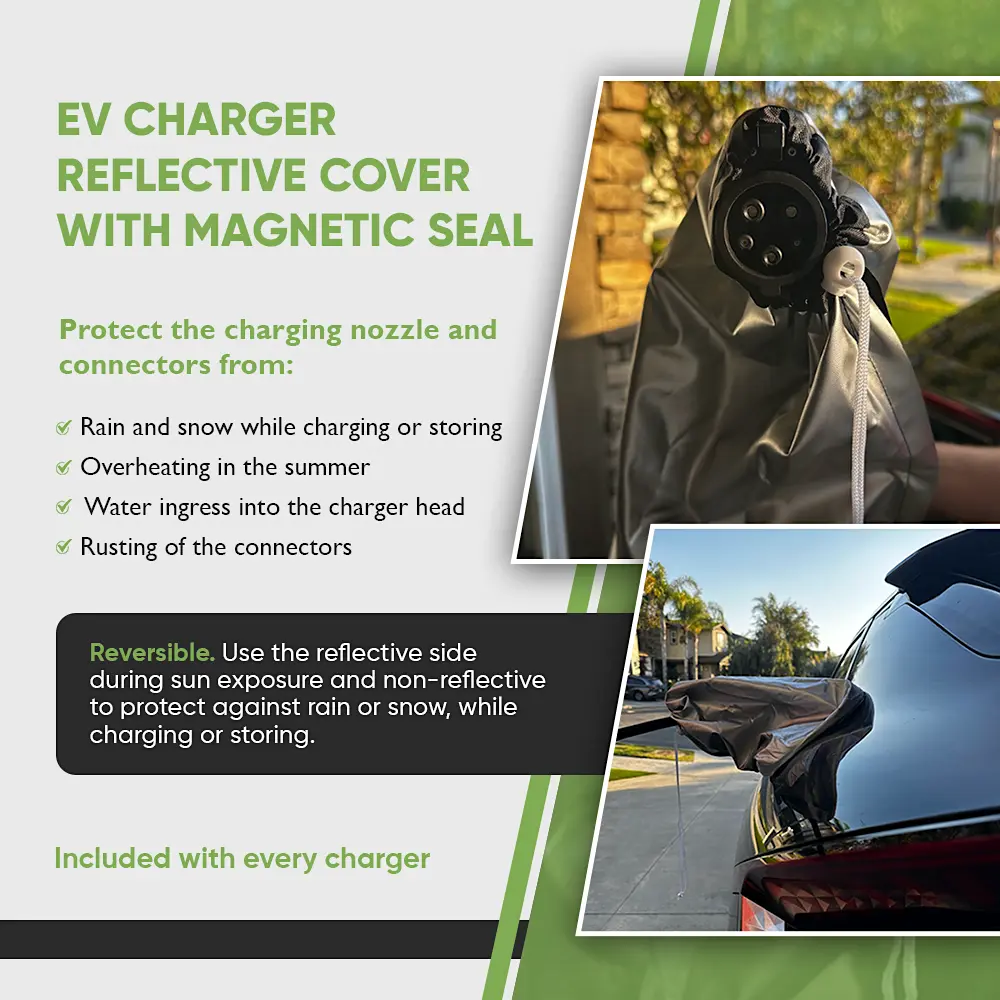
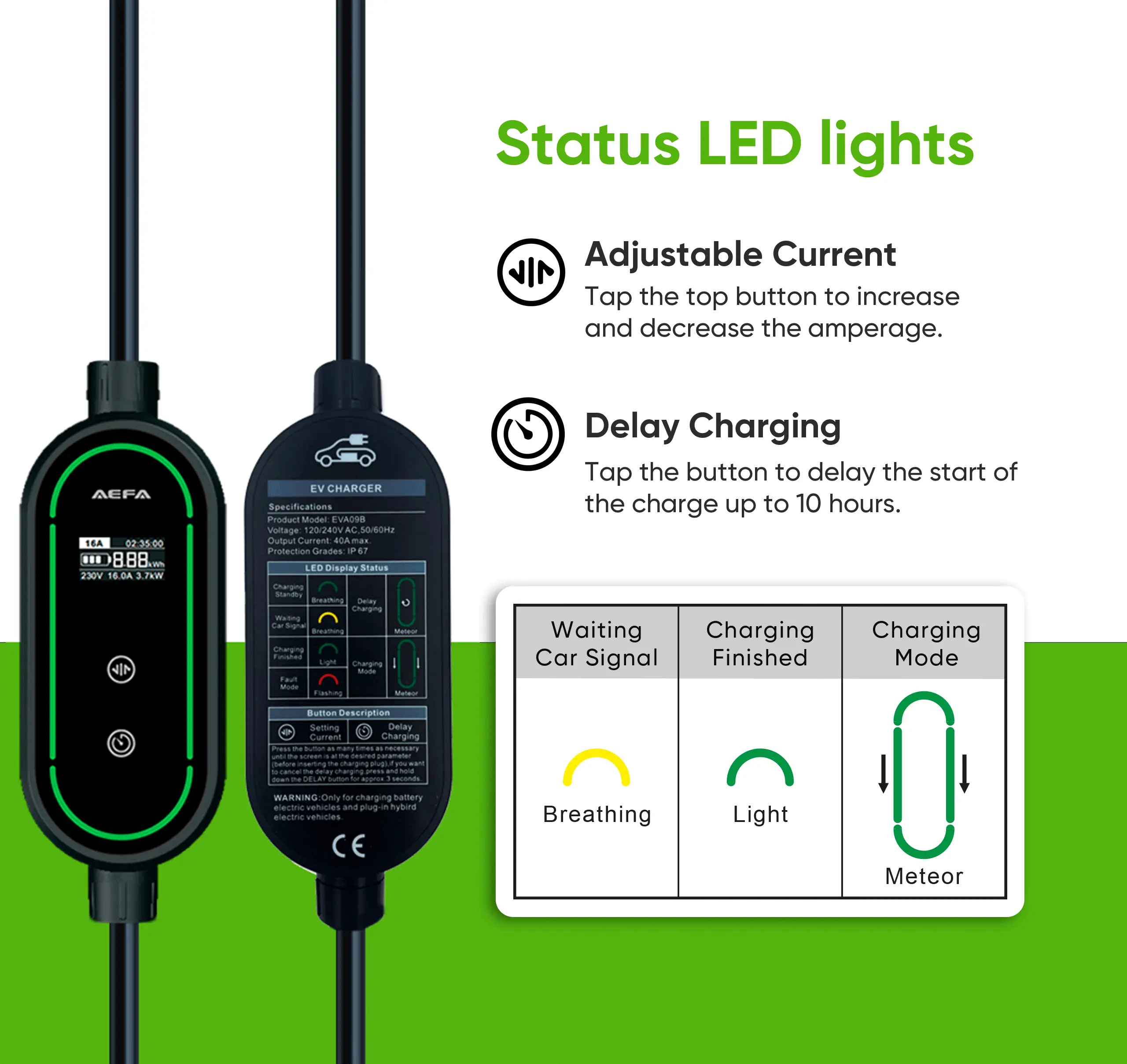
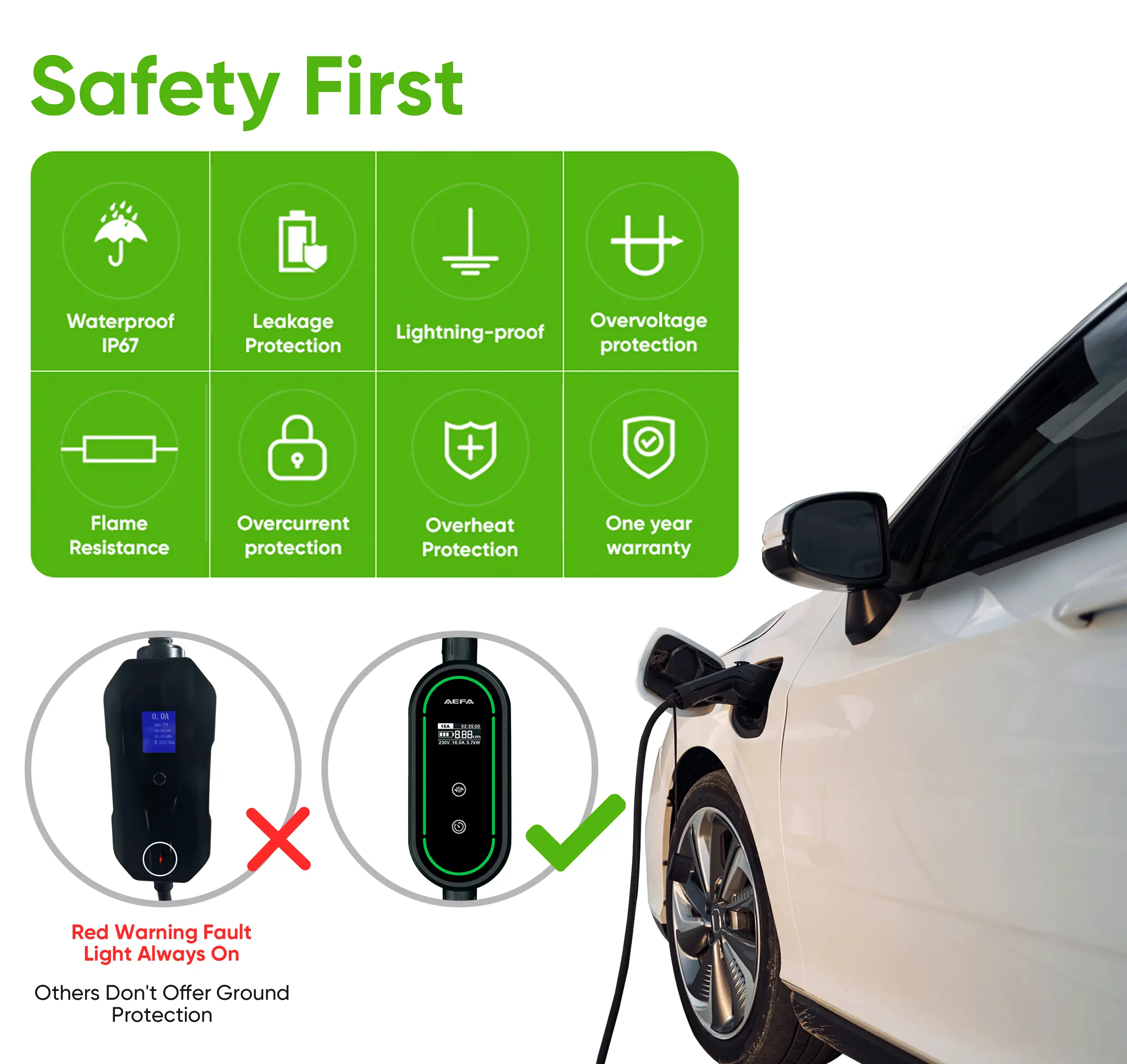
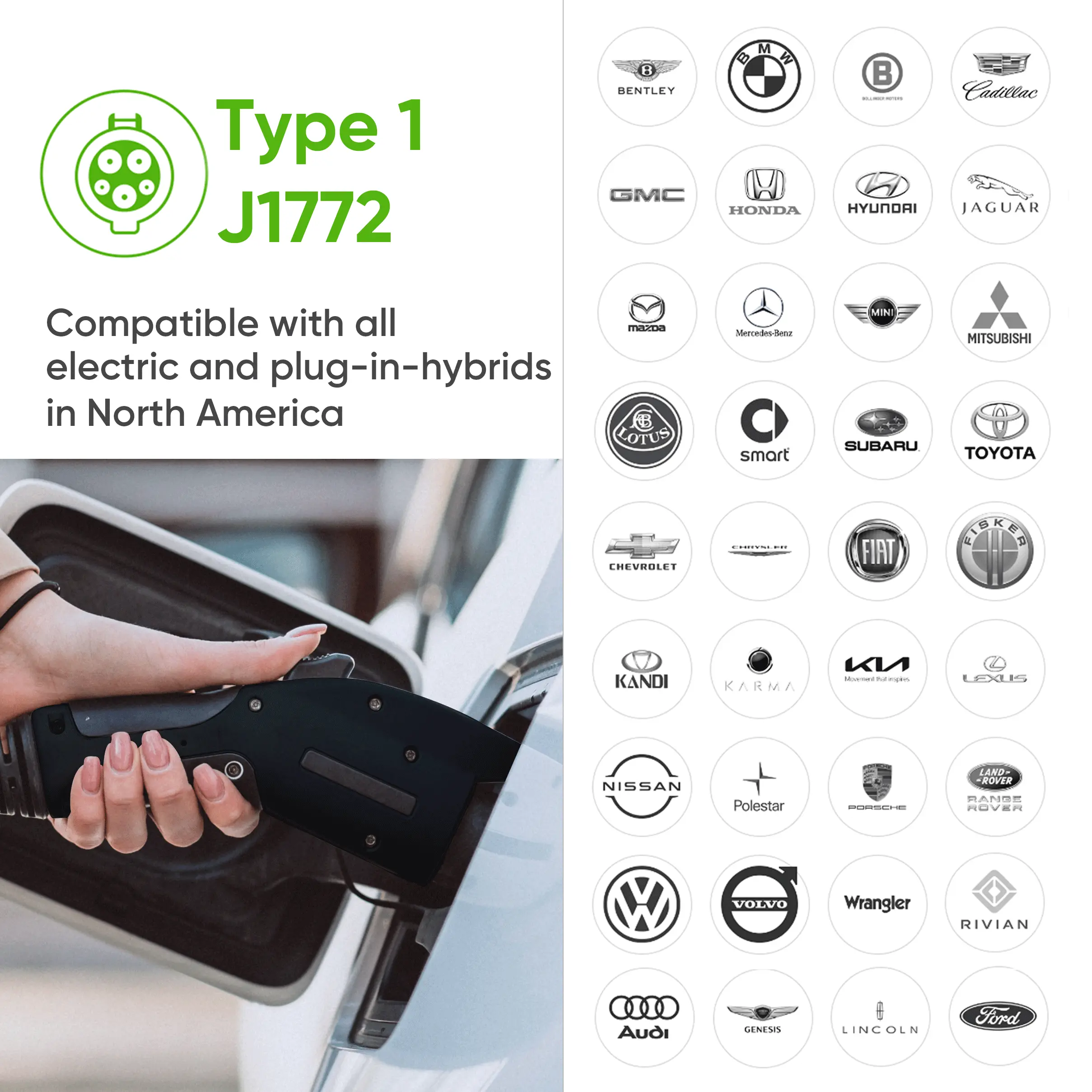
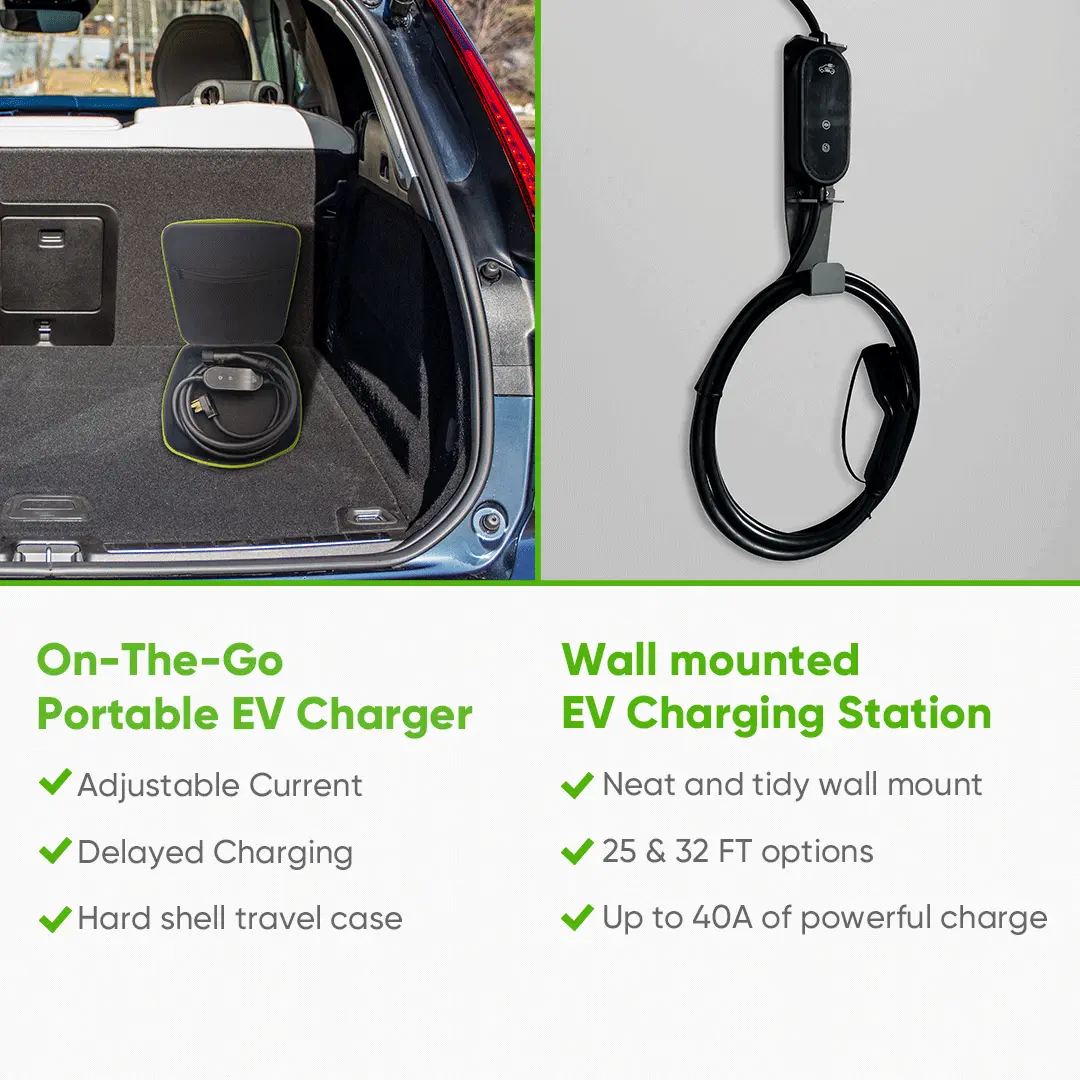
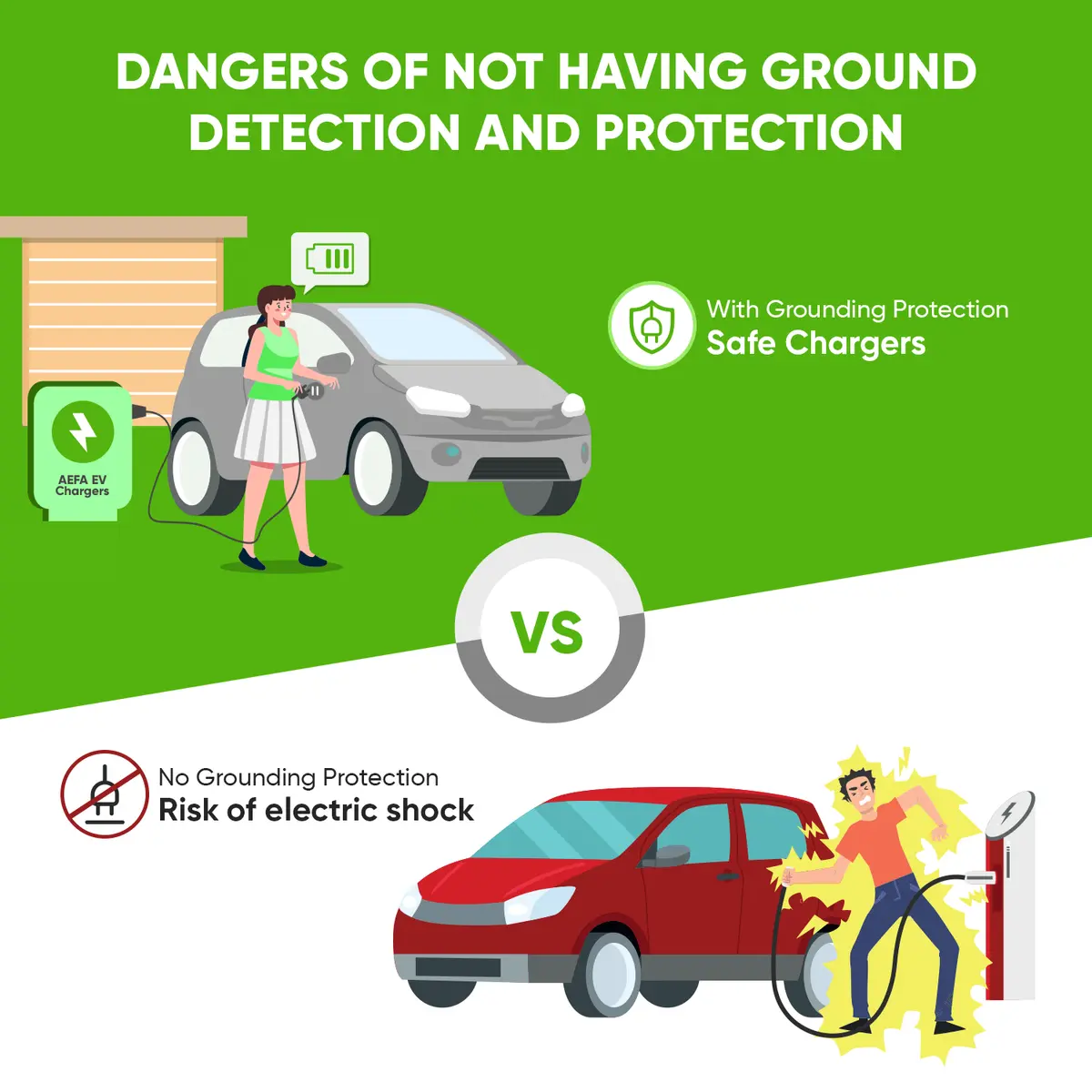
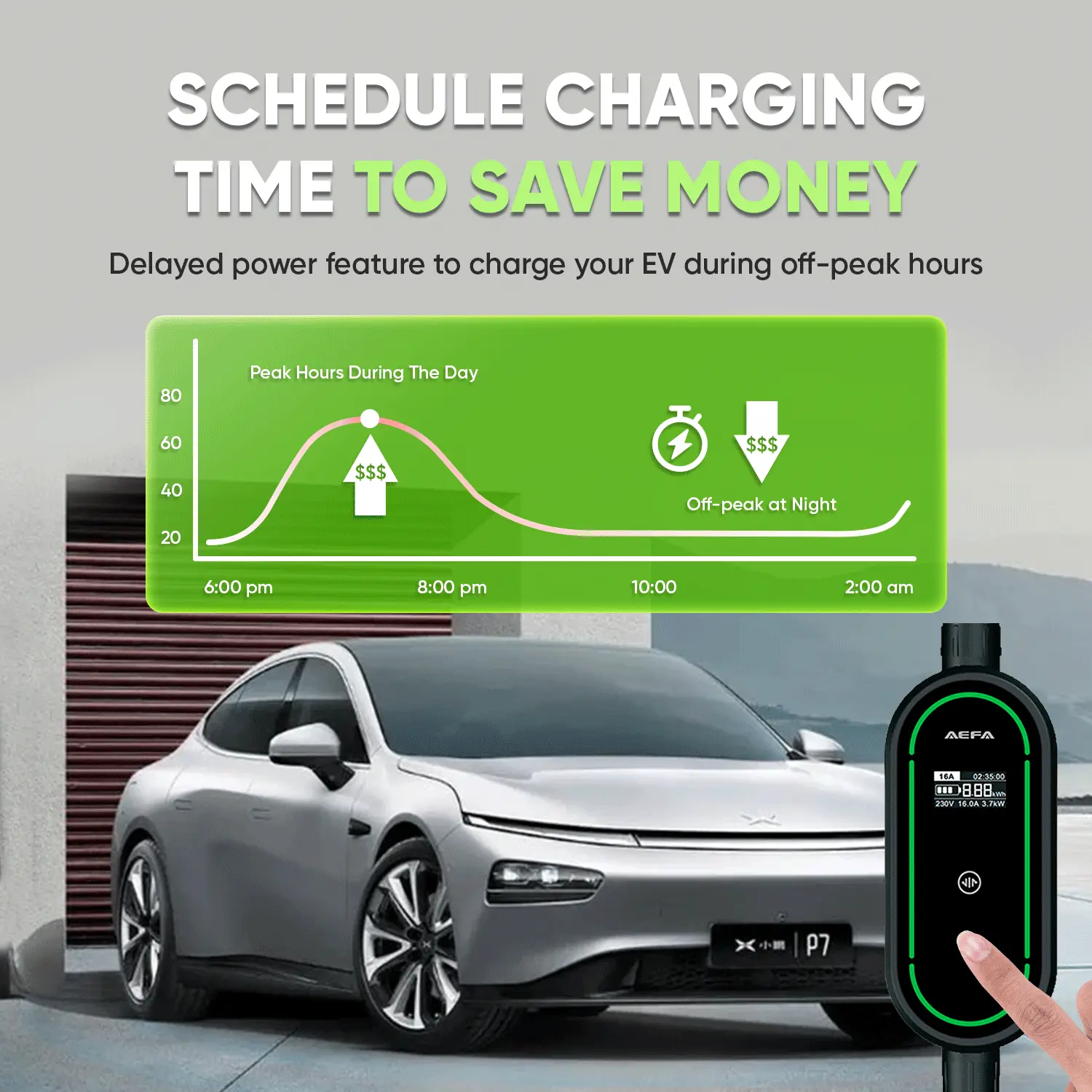
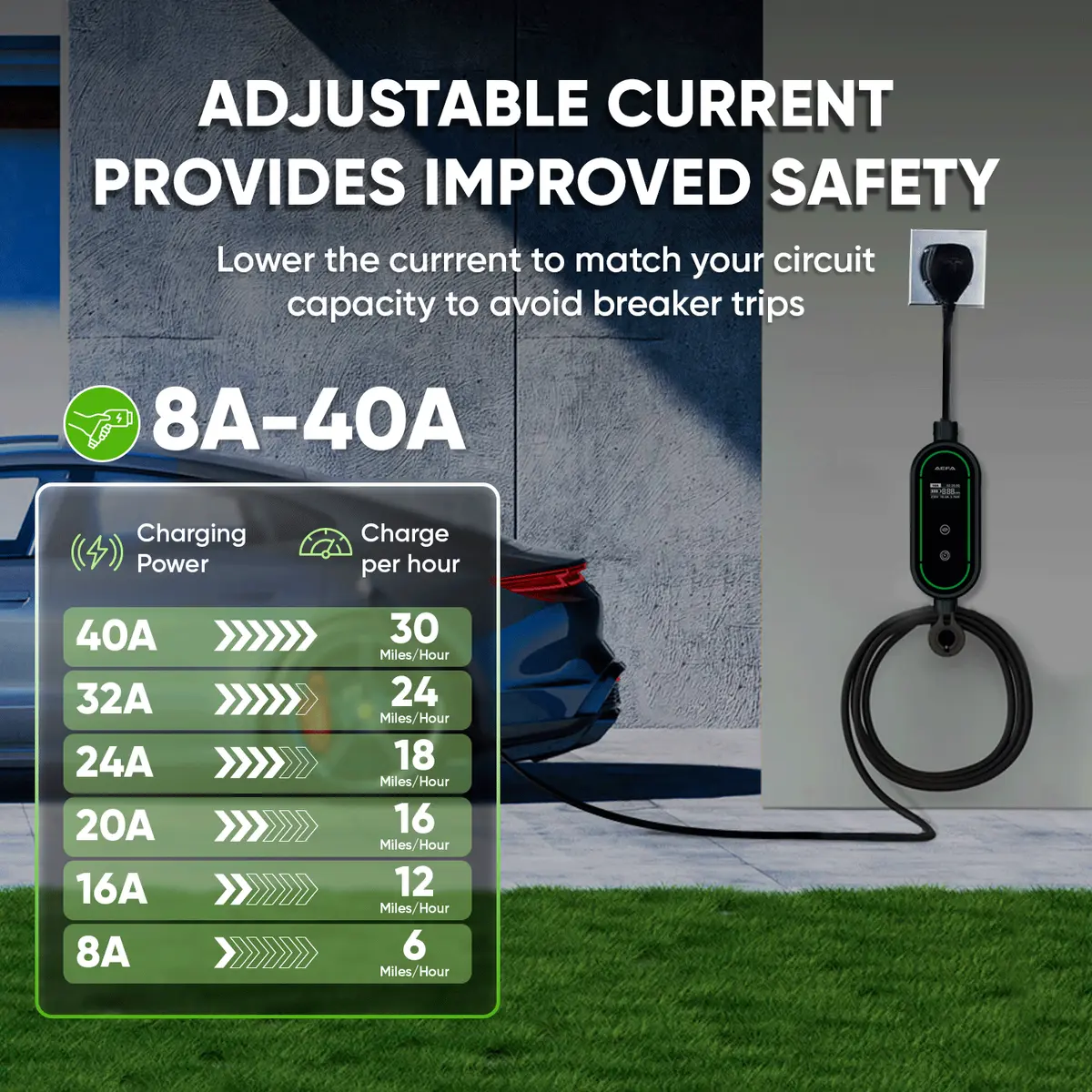
Starting at $120
This product is out of stock.
Order in the next hrs mins for delivery between 00 and 00!
| 3 Pin Plugs | NEMA 5-15 Socket (120V), NEMA 6-30, NEMA 6-20 (240V) |
| 4 pin Plugs
Rating Rated Currents |
NEMA 14-50, NEMA 6-50, NEMA 14-30, NEMA L14-40 (240V)
Indoor/Outdoor rated for installation anywhere 12, 16, 20, 24, 32 and 40 amp |
| Weight | 14 pounds |
| Connector Type | Type 1 (SAE J1772) lockable. Fits all cars including Tesla with Tesla supplied adapter |
| Control Box Dimensions | 2 inches deep x 3.5 inches wide x 8 inches long |
| Cable Length | Convenient 25 feet or 32 feet (total charging length from wall socket 26 feet and 34 feet) |
| Protection | IP67 (international standard EN 60529) |
| Assembly
Temperature |
None
22 degrees Fahrenheit to 140 degrees Fahrenheit |
| Warranty | 12 months |
| Input voltage | 208-240 Volts alternating current (AC), single phase |
| Approvals | CE, CB & TUV Approved |
| Material | Premium TPU with thin and lightweight cable |
| Compatibility | Suitable for all U.S. and Canadian EVs (SAE J1772 inlet) |
| Integrated DC Leakage Protection | Type B residual current detection |
| Surge Protection | Over/under voltage, overload protection, short circuit protection, leakage current protection, over
temperature protection, lightning protection, active ground detection |
| Ground Monitoring | Yes |
| Residual Current Detection | Alternating current 30 milliamps (mA), Direct Current 6 milliamps (mA)
*Requirements of GB 14048.2 – 2008, GB 16916.1-2014 and GB 22794-2008 |
| Features | LED indicator lights to manage charging errors |
The Toyota RAV4 Prime PHEV is one of the most sought-after hybrid SUVs on the market today. As a car with impressive charging capabilities, it delivers an impressive 42 all-electric mile range and with a more powerful electric motor than the standard hybrid, there’s no surprise it’s a popular choice. The Toyota Rav4 Prime PHEV can be charged by a Type 1 J1772 EV charger at an acceptance charge rate of 3.3kW/h or 6.6kW/h, depending on the model. With many questions about EV charging still uncertain for prospective owners, we have produced a helpful guide to ease any of your concerns.
| Battery Size |
|---|
| 18.1 -kWh |
| DC commercial charging |
|---|
| No |
| Cost per Charge |
|---|
| ~$2.00 |
| Level 2 Charging |
|---|
| Yes |
| Electric Range |
|---|
| 42 miles |
The table below shows charge times from empty to full for a Toyota RAV4 Prime PHEV, with 42 electric miles to charge, for both versions, the one with the acceptance rate of 3.3 KWh and the one that offers 6.6 KWh. In the example below, we show different common residential plugs for both Level 1 and Level 2 charging.
Plugging the vehicle into different types of chargers, such as Level 1 and Level 2, can achieve the listed charging times.
| Plug Type |
|---|
| Level 1 – 5-15 (regular 3-pin) 120V |
| Level 2- 14-50 (4-pin) 240V |
| Level 2- 14-50 (4-pin) 240V |
| Charge Rate |
|---|
| 1.5 KW/hour @ 12 amps |
| 5.5 KW/hour @ 24 amps |
| 9.6 KW/hour @ 40 amps |
| AEFA Charge Time |
|---|
| ~ 12 hours |
| ~ 3.5 hours |
| ~ 2.5 hours |
| Plug Type |
|---|
| Level 1 - 5-15 (regular 3-pin) 120V |
| Level 2 - 14-30 (4-pin electric dryer type) 240V |
| Level 2- 14-50 (4-pin) 240V |
| Charge Rate |
|---|
| 1.5 KW/hour @ 12 amps |
| 5.5 KW/hour @ 24 amps |
| 9.6 KW/hour @ 40 amps |
| AEFA Charge Time |
|---|
| ~ 12 hours |
| ~ 5.5 hours |
| ~ 5.5 hours |
Upgrading your EV charger from a Level 1 manufacturer charger to a Level 2 240-volt charger will allow you to benefit from quicker charging speeds, significantly reducing the charge time depending on the vehicle model and charger type, as per the table above. Quicker charge time will allow you to your electric miles more frequently and allow owners to save on more expensive gasoline miles, as well as enjoy the wider benefits of owning a PHEV.
Whether you prefer to charge your PHEV at home, work, or at a level 2 public charging station, the Toyota Rav4 Prime Plug-In Hybrid can be charged with a Type 1 J1772 charger connector. The onboard charger admits a maximum alternating current (AC) charge rate of 3.3kW/h or 6.6kW/h and the specific vehicle software will limit the charge accepted to this level.
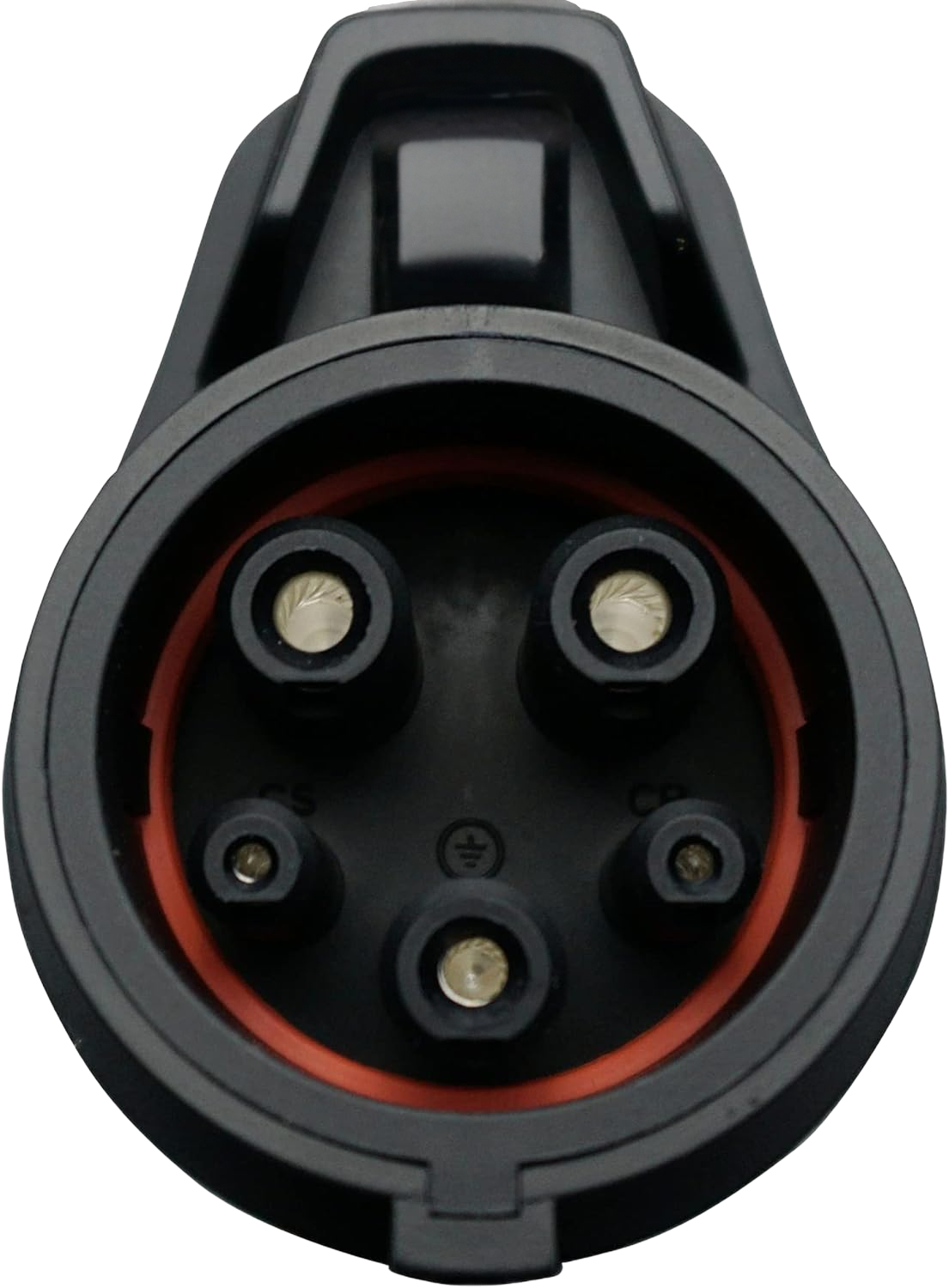
We offer a variety of charger types to accommodate all Toyota Rav4 Prime PHEV owners. If you’re looking for the fastest charge times, the most popular option is the NEMA 14-50 40amp, which maximizes the charging speeds available for this vehicle. Another popular charger is the one featuring a NEMA 14-30 EV plug, which is compatible with 240-volt plug types that some households utilize already for dryers and heavy-duty electrical appliances.
The vast majority of EV owners opt to charge at home as a result of being able to charge at cheaper overnight electricity rates and the added convenience that home charging presents. However, the Toyota Rav4 Prime PHEV can be charged at home, at work, or at any public Level 2 charging stations. The Level 2 14-50 outlet receptacle is also used in campgrounds, RV parks, and other overnight stay locations giving owners the ability to charge at such sites.


The cost to fully charge any EV will differ significantly, depending on the following factors; location (residential or commercial), State in the U.S., time of day or charting power. As electricity costs vary depending on the state you reside in, the calculation below can be modified based on average cost per kW/h. Below are the costs based on U.S. current averages for electricity of 20 ¢/kWh.
| Place | |
|---|---|
| Home (empty to full)* | Commercial chargers** |
| Avg. cost | |
|---|---|
| $2.75 | $7.00 |
| Cost/mile | |
|---|---|
| 0.15¢ | 0.39¢ |
* Assumes average. U.S. tariff of 20 ¢/kWh. Home charging costs will vary state by state, depending on electricity costs.
** Assumes 50 ¢/kWh tariff applicable to most commercial Level 2 network EV chargers.
If you don’t find the answer you need, feel free to contact us.
The Toyota Rav4 Prime Plug-In Hybrid can be charged at Level 2 commercial charging stations. It cannot be charged with DC fast chargers.
The fastest charger type for a Toyota Rav4 Prime Plug-In Hybrid is the 32ampt or 40amp Level 2, 240-volt charger, which is offered in NEMA 14-50 and 6-50 charger types.
The Toyota Rav4 Prime Plug-In Hybrid is charged using a Type 1 J1772 connector. Current models are not compatible with the NACS connector unless they use an adapter.
This will depend on the owner’s lifestyle and preference; however, it is typically not, as the Level 1 charge time for the Toyota Rav4 Prime PHEV is 12 hours. It is unlikely the owner will fully benefit from a full 42-electric-mile range daily if a Level 1 charger is used. Plus off-peak or super-off-peak charging hours normally don’t exceed 6 to 8 hours, so they’d spend more on electricity.
The most popular EV charger is the Level 2 14-50 240-volt charger, as it offers the fastest charging time and can supply a full charge in 2.5 hours with 6.6kW/h or 5.5 hours with 3.3kW/h alternating current.
The main benefits of Level 2 EV charging are the speed of charging, lower charging costs at overnight rates, and extra convenience. This vehicle’s 42-mile all-electric range is greater than that of the standard hybrid, so owners generally prefer a Level 2 EV charger to fully benefit from this range.
The Toyota Rav4 Prime Plug-In Hybrid onboard charger is currently limited to 3.3 kW/h or 6.6 kW/h, depending on the model. This may be increased in future models to facilitate faster charging times.
Thanks for your interest! We’ll be notifying you once the product gets back in stock.